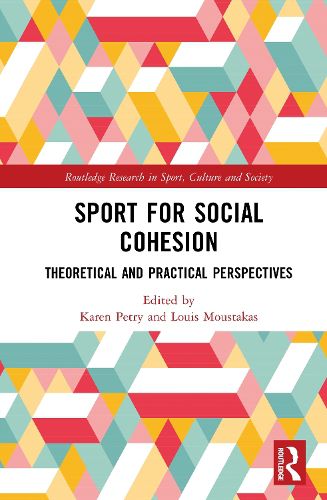Readings Newsletter
Become a Readings Member to make your shopping experience even easier.
Sign in or sign up for free!
You’re not far away from qualifying for FREE standard shipping within Australia
You’ve qualified for FREE standard shipping within Australia
The cart is loading…






This book takes a critical look at the role that sport can play in fostering social cohesion. It presents important conceptual and empirical material that sheds new light on what works, and what doesn't, in terms of the use of sport as a tool of social policy.
The book presents original research from a major international project, the Sport for Social Cohesion Lab (SSCL), that was designed to improve social cohesion in diverse, vulnerable urban neighborhoods and to support practitioners in delivering high-quality sport-for-social-cohesion. Examining the results from that project, the book also critically considers the varying definitions of 'social cohesion' and how outcomes are monitored and evaluated, as well as the needs, expectations and understanding of the participants. This is discussed in the context of research into other international sport-for-development projects focused on social cohesion, providing a full-spectrum analysis of both theory and practice in this important area of sports research.
This is fascinating reading for all researchers, advanced students or practitioners with an interest in sport development, sport policy, social policy, or the relationship between sport and wider society.
$9.00 standard shipping within Australia
FREE standard shipping within Australia for orders over $100.00
Express & International shipping calculated at checkout
This book takes a critical look at the role that sport can play in fostering social cohesion. It presents important conceptual and empirical material that sheds new light on what works, and what doesn't, in terms of the use of sport as a tool of social policy.
The book presents original research from a major international project, the Sport for Social Cohesion Lab (SSCL), that was designed to improve social cohesion in diverse, vulnerable urban neighborhoods and to support practitioners in delivering high-quality sport-for-social-cohesion. Examining the results from that project, the book also critically considers the varying definitions of 'social cohesion' and how outcomes are monitored and evaluated, as well as the needs, expectations and understanding of the participants. This is discussed in the context of research into other international sport-for-development projects focused on social cohesion, providing a full-spectrum analysis of both theory and practice in this important area of sports research.
This is fascinating reading for all researchers, advanced students or practitioners with an interest in sport development, sport policy, social policy, or the relationship between sport and wider society.